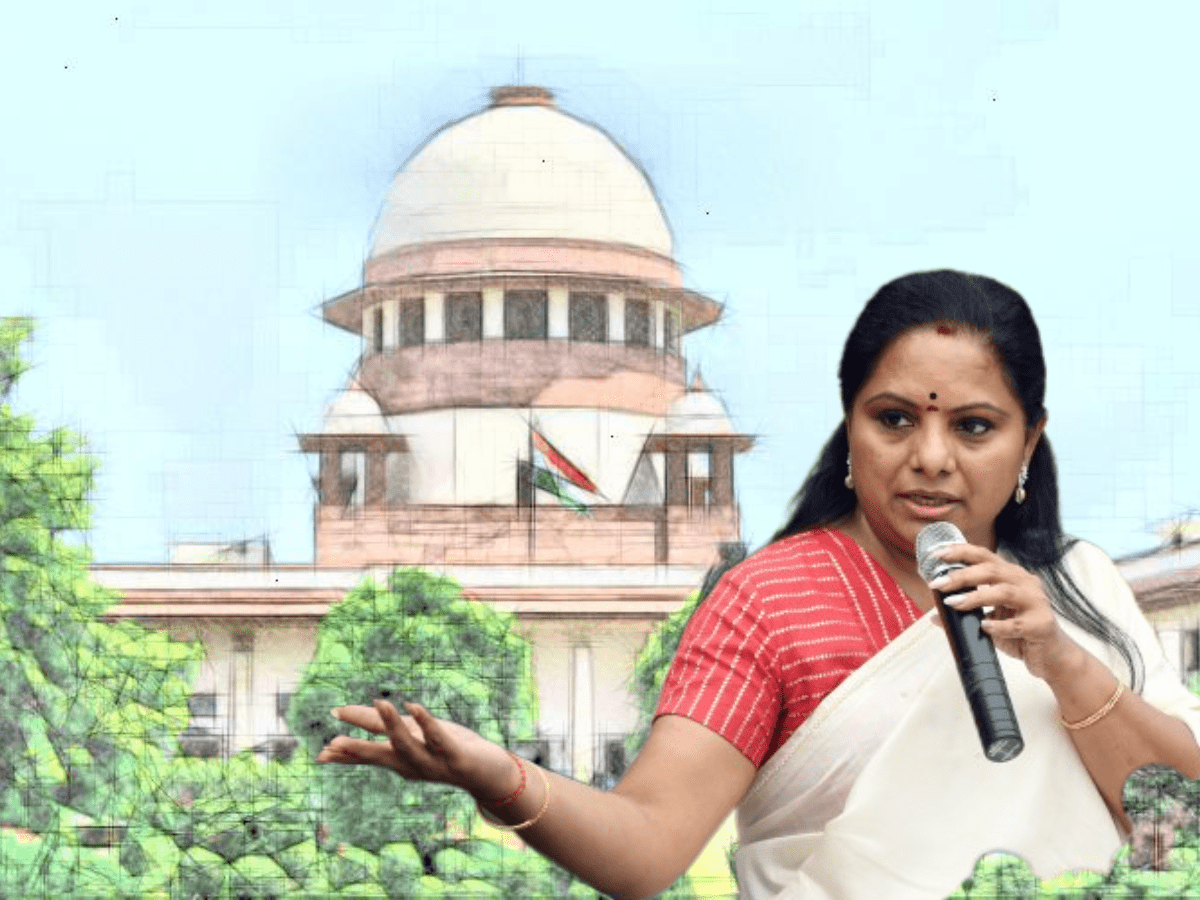
New Delhi: The Supreme Court on Wednesday extended till March 13 the protection it had granted to BRS leader K Kavitha from any coercive action in a money laundering case lodged by the Enforcement Directorate (ED) in connection with the alleged Delhi excise policy scam.
A bench comprising justices Bela M Trivedi and Pankaj Mithal extended the operation of its earlier order and said the matter will now be taken up for further hearing on March 13.
The ED had issued summons to the Bharat Rashtra Samithi (BRS) leader on February 21 seeking her presence on February 26. However, Kavitha did not appear before the central probe agency.
The ED has alleged that Kavitha was a part of liquor cartel ‘The South Group’ which paid kickback of Rs 100 crore to Delhi’s ruling Aam Aadmi Party (AAP) in return for favours under the now-scrapped excise policy for 2021-22.
The top court had on February 5 also extended the protection to Kavitha, the daughter of former Telangana Chief Minister K Chandrashekar Rao.
The bench had deferred the matter after senior advocate Kapil Sibal, appearing for Kavitha, said it may be listed for final hearing.
Additional Solicitor General S V Raju, appearing for the ED, had told the court that Kavitha has been avoiding summons and not appearing before the agency.
On September 15, 2023, the ED had told the apex court that the summons issued to Kavitha for her appearance before the agency would be extended by 10 days.
The ED had issued the summons dated September 4, 2023 to Kavitha, seeking her appearance at the agency’s Delhi office on September 15.
She approached the apex court with an application seeking directions to restrain the ED from calling her by way of a notice or summons under section 50 of the Prevention of Money Laundering Act (PMLA) during the pendency of her petition.
In her plea, she sought protection from coercive action by the anti-money laundering agency on the ground that there are relaxations for women in various criminal laws, including the PMLA.
Section 50 of the PMLA deals with the powers of authorities regarding summons, production of documents, submitting evidence, etc.
The application also sought a stay on the operation of the September 4 summons or any other summons and “all coercive measures relating thereto”.
In a significant verdict on July 27, 2022, the top court upheld the ED’s powers relating to arrest, attachment of property involved in money laundering, search and seizure under the PMLA that were challenged by multiple petitioners, including Congress leader Karti Chidambaram.



